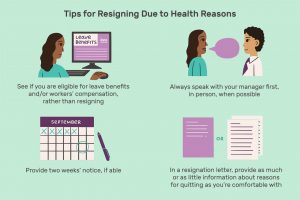The Idealistic Views of Medicine
Ever since I was young, I had romanticized views about being a doctor. I saw it as a noble calling – selflessly helping others, saving lives, and being universally respected. Shows like ER depicted doctors as heroic figures, perpetually rushing to rescue patients in dramatic fashion. This idealistic perspective on medicine heavily influenced my decision to pursue it as a career.
However, the reality I’ve encountered in my medical training often differs from those early ideals. Medicine is emotionally and mentally draining in ways I never could have imagined. As William Osler said, “The practice of medicine is an art, not a trade; a calling, not a business; a calling in which your heart will be exercised equally with your head.” It is a difficult path that requires immense commitment. Here are some key insights I wish I had known before embarking on this journey.
The Toll of Medical Training
The long road to becoming a doctor is arduous. The first two years of medical school involve endless studying: memorizing anatomical structures, pharmacological mechanisms, disease pathways. Then comes the clinical years, where you work 80+ hours a week, enduring overnight shifts with little sleep. Stress, self-doubt, and imposter syndrome run high. There were many times I questioned if I was cut out for this.
As Helen Keller said, “Character cannot be developed in ease and quiet. Only through experience of trial and suffering can the soul be strengthened, vision cleared, ambition inspired, and success achieved.” Pushing through medical training forges grit and resilience. But I wish I had known just how demanding it would be on all fronts before diving in.
Dealing with Death
Despite doctors’ best efforts, we cannot save every patient. Bearing witness to suffering and death is an inescapable part of the profession. My first patient death in medical school shook me to my core. I replayed the case over and over, wondering what I could have done differently. Over time and with experience, I’ve learned how to process these experiences in a healthy way.
As the Dalai Lama said, “Death is a natural part of life. Rejoice for those around you who transform into the light.” But for those new to medicine, processing grief while remaining composed can be intensely difficult. I wish this reality of the field had been addressed more transparently.
Work-Life Balance Challenges
A career in medicine demands tremendous personal sacrifice. Long hours at the hospital mean missed family events, holidays, and trips. I’ve lost count of how many dinner plans, birthdays, and weddings I’ve had to cancel because of work. And even when I’m not physically at the hospital, the responsibilities still weigh heavily. As a physician, I feel constantly connected to my patients and duties. True breaks from the work are rare.
As Rock Brynner said, “Men and women ought to work eight hours a day for four days a week and then have three days off so that they can retire at age 45.” Medical training hardly ever affords this kind of balance. I went into the field knowing it would require hard work, but I wish I had fully grasped the extent to which medicine would come to dominate my life.
Dealing with Debt
The cost of medical school in the U.S. is astronomically high. I had to take out huge student loans to pay for my education. Now as a resident, I’m making a modest salary while interest on my debt continues accruing. It will likely take years, if not decades, for me to pay these loans off, even while practicing as an attending physician. This financial burden weighs heavily.
As Robert Kiyosaki said, “Too many doctors don’t think about the business side of medicine.” I focused only on getting into medical school without considering the long-term monetary impacts. I wish I had been encouraged early on to approach medicine more like a business in terms of planning finances.
Finding the Right Specialty
With so many potential specialties to choose from, deciding which one is the best fit can be overwhelming. As a student, I rotated through numerous departments – surgery, internal medicine, psychiatry, pediatrics – before ultimately choosing family medicine. Others in my class took very different paths into specialties like radiology or anesthesiology. I was initially anxious about making the right choice.
As Hippocrates said, “There are in fact two things, science and opinion; the former begets knowledge, the latter ignorance.” My advice for new med students is to follow the science that fascinates you most. Clinical exposure helps gauge what work environments and patient populations you click with. Don’t stress – go where your passion lies.
The Emotional Toll
Doctors are expected to be stoic pillars, absorbing patients’ pain without being overcome ourselves. But refusing to acknowledge our own grief, stress, and mental health struggles can be dangerous. Doctors have a shockingly high burnout and suicide rate – outcomes of a toxic culture that discourages vulnerability. I wish emotional wellbeing had been valued more in my training.
As Danielle Ofri said, “Medicine asks you to ignore your own pain and suffering and to immediately focus on that of the patient. But we acknowledge that this is not sustainable – it leads to burnout.” As a young doctor, I felt pressured to constantly suppress my struggles. I wish cultivating self-care and community had been built into my medical education from the outset.
Though parts of the medical life have challenged my ideals and tested my resolve, this profession remains an incredible privilege. With knowledge of the realities ahead, I believe it is possible to pursue medicine in a balanced, healthy, and sustainable way. As William Osler said, “The young physician starts life with 20 drugs for each disease, and the old physician ends life with one drug for 20 diseases.” With experience comes wisdom – I now know how to practice good medicine, and good self care.

















